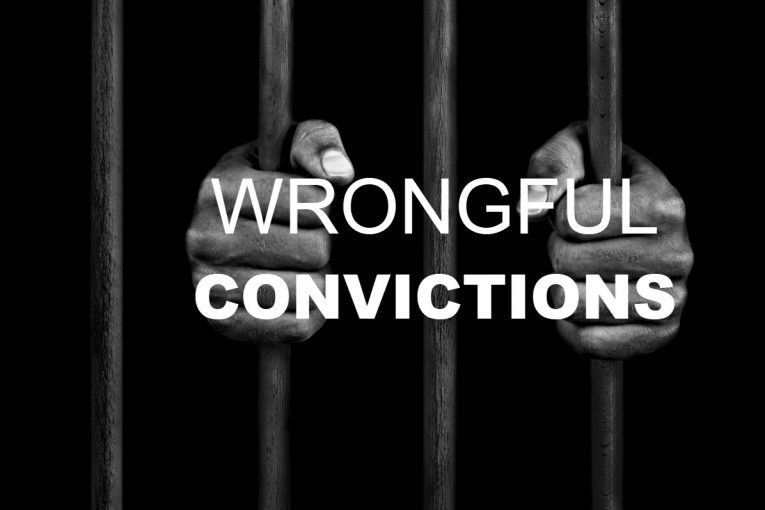
At the 2025 American Bar Association (ABA) Midyear Meeting in Phoenix, the ABA House of Delegates approved a resolution aimed at assisting prosecutors who face procedural hurdles or judicial skepticism when attempting to vacate wrongful convictions.
Resolution 503 calls on federal, state, tribal, and territorial governments to enact laws or establish rules that facilitate prosecutors’ efforts to request the vacating of convictions due to “errors of constitutional magnitude” or “compelling evidence of the defendant’s factual innocence.”
The resolution emphasizes that courts should give “appropriate weight” to a prosecutor’s request to vacate a conviction and, unless there is compelling evidence to the contrary, such requests should be granted.
Wrongful convictions represent a grave miscarriage of justice, undermining public trust in legal systems and devastating the lives of innocent individuals.
The American Bar Association has long recognized the need to address this issue, advocating for measures to ensure the integrity of criminal convictions and correct unjust outcomes.
The recent resolution by the ABA’s Criminal Justice Section underscores the need for legislative reform to empower prosecutors to vacate wrongful convictions without being hindered by procedural barriers or skepticism from the judiciary.
Prosecutors play a dual role in the justice system: they are advocates for the state, but they are also tasked with ensuring that justice is served. This duty extends to rectifying wrongful convictions.
The ABA’s Model Rules of Professional Responsibility emphasize that prosecutors must disclose new evidence that could exonerate a convicted individual and initiate investigations into potential wrongful convictions. However, the practical implementation of these responsibilities often encounters significant challenges.
A prosecutor who “becomes aware of “new, credible, and material evidence creating a reasonable likelihood” that a defendant is innocent must disclose this evidence and initiate an investigation to determine if the defendant was wrongfully convicted.”
Furthermore, if a prosecutor “knows of clear and convincing evidence” that a defendant was wrongfully convicted of an offense, the prosecutor is obligated to “remedy the conviction.”
These rules demonstrate that the role of a prosecutor is not just that of an advocate but of “a minister of justice,” and carries obligations to “see that the defendant is accorded procedural justice, that guilt is decided upon the basis of sufficient evidence, and that special precautions are taken to prevent and to rectify the conviction of innocent persons.”
Conviction integrity units (CIUs), established within some prosecutor’s offices, aim to address wrongful convictions by reviewing claims of innocence and seeking to rectify errors. According to the National Registry of Exonerations, there are now fifty-two CIUs in the United States.
Despite their presence, prosecutors still face hurdles when attempting to vacate wrongful convictions, often due to procedural barriers or judicial intransigence. These obstacles highlight the need for a legal framework that supports prosecutorial efforts to ensure justice.
“Despite the implementation of these units, prosecutors seeking to remedy wrongful convictions still face hurdles that this Resolution is meant to address,” the report said. “Challenges arise when there is no legal mechanism to vacate a wrongful conviction available to the prosecutor either because the state does not provide for one or because the remedy is unavailable due to procedural bars.”
The ABA’s resolution calls for federal, state, tribal, and territorial governments to enact statutes or rules that allow prosecutors to request the vacating of convictions when constitutional errors or evidence of factual innocence are discovered. Importantly, the resolution emphasizes that procedural bars should not prevent courts from considering the merits of a prosecutor’s request.
Moreover, absent compelling evidence to the contrary, courts should give due weight to prosecutorial confessions of error.
“Challenges also arise when the prosecutor’s confession of error is treated with skepticism by courts even when the confession is supported by substantial evidence,” the report explained. “Some courts refuse to honor prosecutorial confessions of error based on a misunderstanding of the prosecutor’s nuanced role, by inviting a state attorney general to weigh in who takes the opposite position, by relying on procedural bars.”
The resolution is rooted in the understanding that prosecutorial duties transcend mere advocacy. As articulated in the landmark case Berger v. United States, the prosecutor’s role is not to win cases, but to ensure that justice is done. This includes refraining from improper methods that could lead to wrongful convictions. Unfortunately, some courts and higher-level prosecutors, such as state attorneys general, have been reluctant to accept prosecutorial confessions of error, often due to a misunderstanding of the prosecutor’s role or procedural constraints.
The challenges faced by prosecutors in addressing wrongful convictions are exemplified by several high-profile cases. In Missouri, the case of Lamar Johnson illustrates the difficulties prosecutors encounter when attempting to rectify wrongful convictions. Despite the local prosecutor’s office uncovering evidence of prosecutorial misconduct, the State Attorney General opposed relief, and the courts dismissed the prosecutor’s motion on procedural grounds. Similarly, in Oklahoma, the case of Richard Eugene Glossip underscores the resistance prosecutors face, as the state’s highest court refused to honor a prosecutorial confession of error, despite significant evidence of constitutional violations.
These cases highlight the urgent need for reform. The ABA’s resolution advocates for the establishment of legal mechanisms that allow prosecutors to act on their ethical obligations without being impeded by procedural barriers or judicial skepticism. Such reforms would ensure that the justice system prioritizes substantive justice over procedural technicalities, particularly in cases where the stakes involve life and death.
By urging legislative bodies to adopt rules and statutes that support prosecutorial efforts to vacate wrongful convictions, the ABA aims to enhance the integrity of the criminal justice system. These measures would not only provide prosecutors with the tools needed to address wrongful convictions but also reaffirm the fundamental principle that justice should prevail over procedural hurdles.